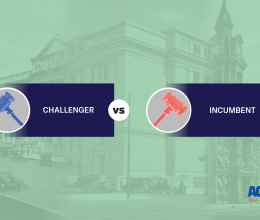Ohio’s old system of sex offender classification, determining whether or not and how often convicted sex offenders must report to local law enforcement, was far from perfect but did rely in large part on how likely an offender was to re-offend. Such laws were challenged in the past because of their punitive nature and their retroactivity. However, those challenges have been largely unsuccessful. Ohio adopted a state version of the federal Adam Walsh Act at the urging of the federal government. The new law scrapped Ohio’s old classification system (known as Megan’s Law) and replaced it with a stricter system that does not take into account offenders’ likelihood to re-offend and applies even to offenders whose reporting requirements ended before passage of the new law. We are litigating a number of cases arising under the Adam Walsh Act.
The Ohio Supreme Court accepted several test cases on the Adam Walsh Act. Details on these cases can be found below.
In June 2010, the Ohio Supreme Court ruled in State v. Bodyke that individuals who were classified by a court under the old Megan’s Law could not be reclassified under the new Adam Walsh Act. However, the Court’s decision in Bodyke still leaves many unanswered questions that are being pursued in other test cases. Unfortunately, this leaves many cases in limbo.
On July 13, 2011 the Ohio Supreme Court ruled in State v. Williams that the new registration requirements of the Ohio Adam Walsh Act are punitive because they impose additional burdens or obligations on individuals who committed an offense before the passage of the law, thus violating the Ohio Constitution’s Retroactivity Clause that prohibits imposing greater punishment after the fact. This was a huge victory, because prior sex offender registration and notification laws, including Megan’s Law, had been upheld by the Court as not being punitive. The Williams decision was 5-2.
Legal Theory
In January 2005, D.S. was adjudicated delinquent for three counts of rape and committed to the Ohio Department of Youth Services. In August 2007, D.J.S was classified as a Tier III juvenile sex offender registrant under S.B. 10, Ohio's newly enacted version of the Federal Adam Walsh Act. He appealed his classification to the Third District Court of Appeals, which affirmed D.J.S's classification.
Status Update
The Ohio Supreme Court agreed to hear D.J.S’s appeal. Along with issues of retroactivity, one of the questions the court will have the opportunity to address in this case is the discretion of juvenile court judges to determine classification. If the judges have sufficient discretion, then that changes the entire dynamic of the law, rendering many of its provisions constitutional. In the case In re G.E.S., the Ninth District Court of Appeals, held that juvenile judges have that jurisdiction. We are amicus in support of D.S. addressing the judicial discretion issue.
The amicus brief was filed in the Ohio Supreme Court on March 3, 2009. Oral argument was held November 4, 2009. The Ohio Supreme Court released its decision on October 20, 2011, in which it reversed and remanded the case to be reconsidered in light of its decision in State v. Williams. On October 31, the State asked for the Ohio Supreme Court to reconsider or stay the
decision. The Court on December 11, 2011 denied reconsidering the case. However, it did grant the State’s motion to stay the order until the court releases its decision in In re J.V. The OAG has filed a response with the Ohio Supreme Court to D.S.’s Motion to Enforce a Stay, prohibiting the OAG from reclassifying offenders. The OAG has responded, requesting that this motion be denied because it is not the proper format for such a request. OAG further argues, assuming arguendo, that this was the proper manner to raise such an issue, the OAG is not violating the stay, it is merely returning those adjudicated prior to Adam Walsh, under Megan’s Law, to their previous classifications. On March 21, 2012 the Court denied the motion to enforce stay. On December 5, 2012, the Court lifted the stay of the mandate and remanded the case for application of State v. Williams and In re J.V.









